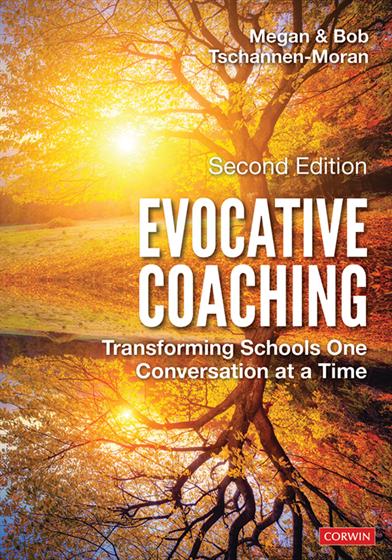Preface
Acknowledgments
About the Authors
Chapter 1: Introduction to Evocative Coaching
The Dynamic Dance of Evocative Coaching: LEAD
The Five Concerns of Coaching
The Power of Evocative Coaching
Coaching from a Variety of Roles
Key Points in This Chapter
Questions for Reflection and Discussion
Chapter 2: Coaching Presence
Lessons from a Horse Whisperer
Fostering Trust and Rapport
Holding the Coaching Space
Conveying Coaching Presence
Creative Energy Check-In
The First Coaching Session
Key Points in This Chapter
Questions for Reflection and Discussion
Loop 1: The No-Fault Turn
Chapter 3: Listen for Stories
The Power of Story
Evoking Teacher Stories
Attentive Listening
Imaginative Story Listening
Key Points in This Chapter
Questions for Reflection and Discussion
Chapter 4: Empathize for Connection
Understanding Empathy
Leading with Heart
The Language of Compassion
The Golden Sigh
Key Points in This Chapter
Questions for Reflection and Discussion
Loop 2: The Strengths-Building Turn
The Learning Brief
Chapter 5: Appreciate Strengths
The Principles of Appreciative Inquiry
SOAR—Illuminating the Best of What Is and What Might Be
Key Points in This Chapter
Questions for Reflection and Discussion
Chapter 6: Design-Thinking
Designing SMARTER Experiments
Choreographing the Coaching Dance
Key Points in This Chapter
Questions for Reflection and Discussion
Chapter 7: The Dynamic Flow of Change
Getting into Flow
Managing Clouds, Wind, and Thunder
Rolling with Resistance
Honoring Ambivalence
Exploring Culture Change
Getting out of the Way
Key Points in This Chapter
Questions for Reflection and Discussion
Chapter 8: The Reflective Coach
Hearing Our Own Story
Self-Empathy
Inquiring Into Our Own Professional Practice
Design Our Own Smarter Experiments
Professional Coaching Code of Ethics
Conclusion
Key Points in This Chapter
Questions for Reflection and Discussion
Appendix: Evocative Coaching Principles, Questions, and Reflections
References
Index




